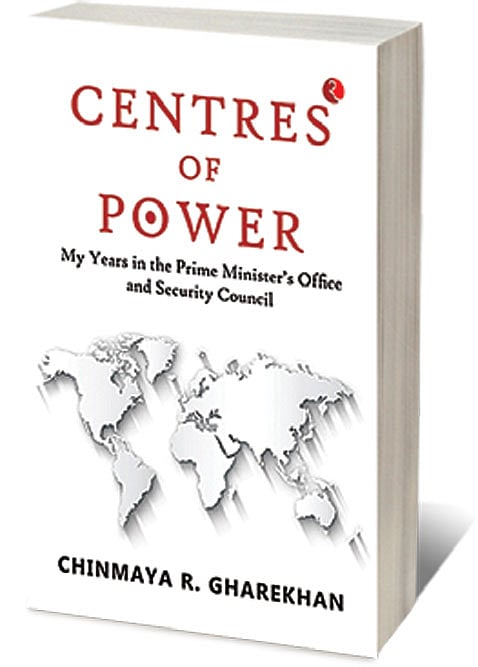Reminiscences of a Bureaucrat

NOT IN THE SAME league as the political memoir, but still germane, is the bureaucrat’s reminiscences. In the diary format it becomes more compelling because the account of events is as they are happening. Some decades back, BN Tandon came out with two volumes on being part of Indira Gandhi’s Prime Minister’s Office (PMO) in the lead up and during the Emergency, and it was a first-class look into the breakdown of ethos and systems. Chinmaya R Gharekhan’s Centres of Power is also based on a diary he maintained while working under Indira Gandhi and Rajiv Gandhi, but there is a difference. While Tandon just put out whatever he had written in the diary as a diary, Gharekhan is looking at what he wrote at the time and has turned it into a memoir. Something is both gained and lost as a result.
The sense of immediacy is diluted but because he is now also playing the role of editor, he can pick and choose what to play up, allowing it to be spicier. As when, in 1958, he seeks the then finance minister Morarji Desai’s guidance on whether to take up the Indian Administrative Service (IAS) or Indian Foreign Service (IFS) and is told that the former would mean being able to serve the nation and the latter having a good time. He chooses IFS and in his posting in Cairo, runs into Desai again who tells him immediately after being introduced: “So you decided to have a good time.” Gharekhan began maintaining his diary later after being posted in Indira Gandhi’s PMO in 1982. He gives an insider’s picture into not just her personality and style of working but also the foreign leaders she interacted with.
AIming High
20 Feb 2026 - Vol 04 | Issue 59
India joins the Artificial Intelligence revolution with gusto
We learn, for instance, that she detested the Sri Lankan president JR Jayewardene. Those were the days when India was the torchbearer of the Non-Aligned Movement (NAM) that, on paper at least, was a group of nations seeking to keep equidistance from the Soviet Union and the US. When Jayewardene came with a proposal that she, as chairperson of NAM, set up a committee that would go to meet the US president, she not only fobbed him off but lobbied against it. The book states: “In any case, she said, ‘This was a stupid proposal but even if it was not, I am not going to support it since its author is Jayewardene.’” There is perhaps a PhD thesis somewhere on the effect of pettiness on history.
Indira Gandhi didn’t like the Americans, loved the British and was not as close to the Russians as people thought. In fact, Gharekhan writes that her relationship with the Russians was partly dictated by domestic political considerations. A chapter on her assassination has an unusual touch of sentiment. He tells us what transpired that day. He goes to the spot and sees among the bullets and blood, her oversized golf umbrella lying there, and remembers a conversation where he had mentioned that she needed a smaller one and her reply was— “yes, I wouldn’t mind”—and he had thought of getting her one but was waiting to get the colour approved, but: “Now it was too late.”
He continued in the PMO with Rajiv Gandhi and, in an all too brief sketch, shows us a politician who wanted to clean and change India but was too impetuous. Gharekhan’s stint in the PMO ended abruptly when the prime minister peremptorily wanted him out believing him, mistakenly, to be responsible for a poor selection of gifts for an official visit to Bhutan. He was sent to the US as permanent representative and the last part of the book is a blow-by-blow account of what happened there as the US invaded Iraq following its annexation of Kuwait.
There are no deep dark secrets being spilled here but Centre of Power is still breezy enough to make it not disappointing for anyone interested in the politics of a seminal period in independent India.

